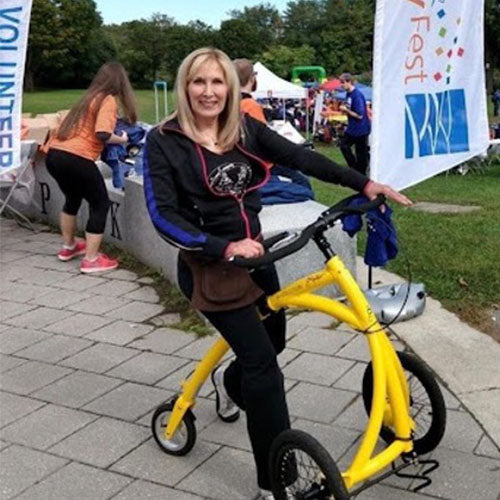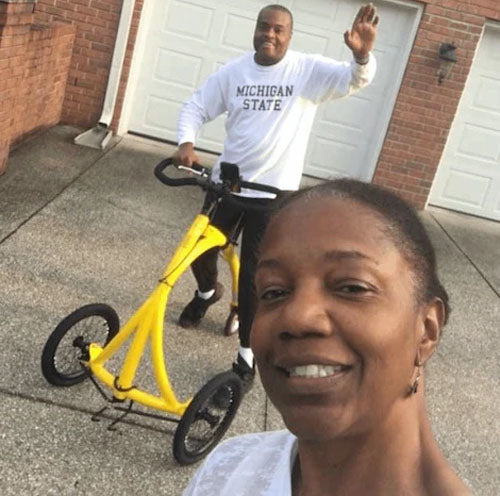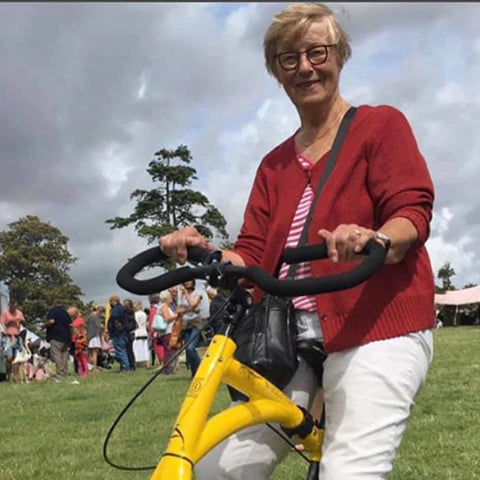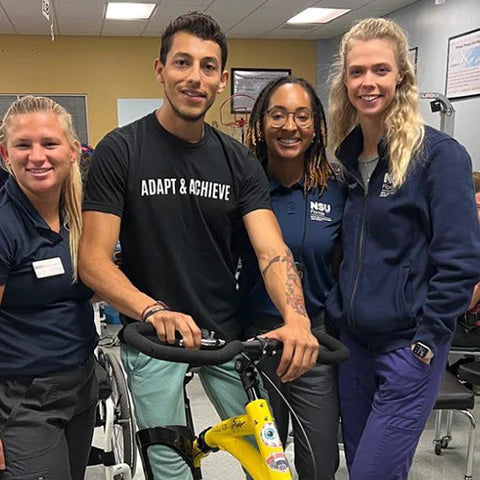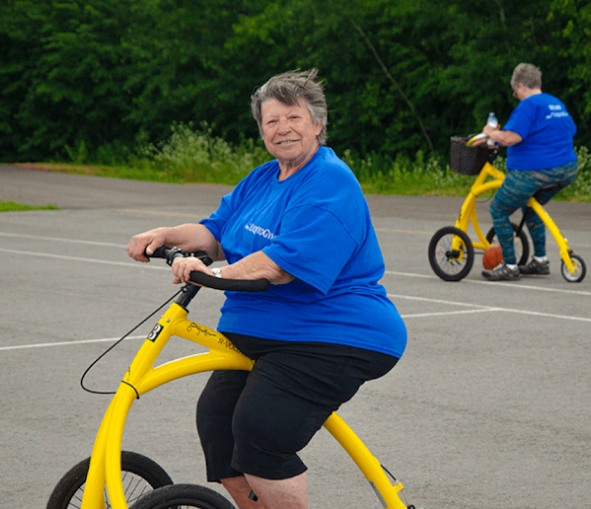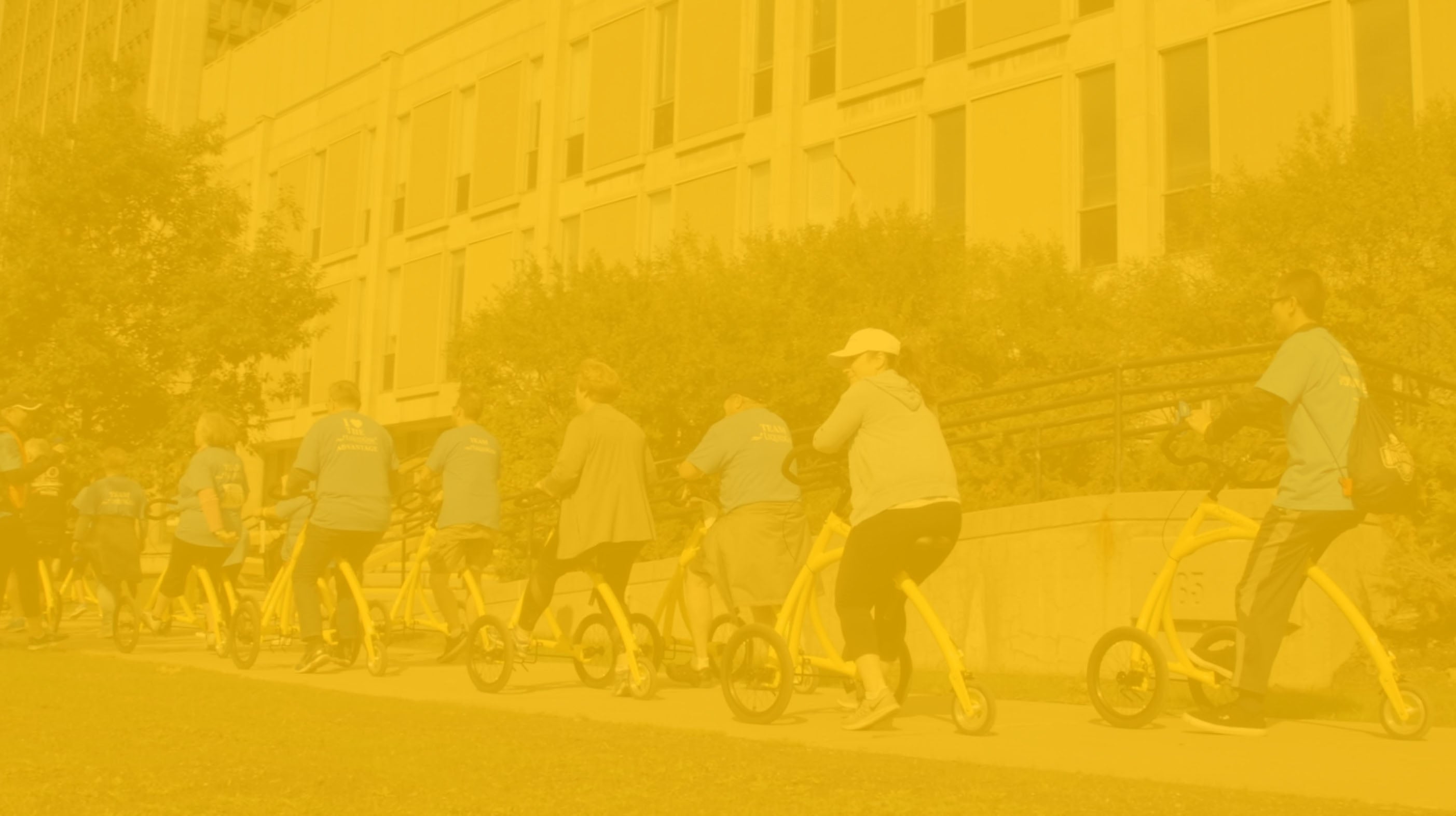Hello everyone!
I’ve been living in a facility for 12 years. I moved in at 39 and I’m 50 now. I was never sure what career or field I wanted….but I know living in a nursing home wasn’t part of my plan.
In 1999 I moved from Montreal, Canada to Charlotte, North Carolina. It was for a guy. I was 26 and in love. Surprisingly (read: sarcasm), it didn’t work out.
I take that back, it did work out. Not the relationship part, though. The long distance part of the relationship convinced me I was in love. The everyday part of the relationship convinced me we were better apart.
In order to stay in the country I needed to continue my education on a student visa. So that’s what I did. I was a graduate assistant, getting my Master of Arts in Organizational Communications. My job? I ran the international dorm for one year and the co-ed freshman dorm for three years.
If only I had known then that running the freshman dorm was preparing me for living in a nursing home. In my experience, community living isn't that different in any form, no matter the generations. Same amount of preconceptions and misconceptions, same amount of drama, same amount of sex, but with more mobility aids.
I came back to Canada, after I had been diagnosed with MS and my health rapidly declined. I moved provinces to live with my mum for four years after supporting myself and living on my own for 20 years. It was a difficult time for us both. On July 1st, 2010, I moved to the nursing home where I live now. It was another huge change, but I was thankfully familiar with community living.
People feel bad about loved ones, or themselves, moving into a nursing home. They often associate moving into Long Term Care with giving up, with the end. No one wants to live in LTC. It is a necessary evil (interesting fact: many couples prefer to have separate rooms, in separate houses).
I was in shock at the beginning because the staff are there to help YOU. It took me a long time to be able to ask for help and not feel guilty about it. It has only been in the last few years that I will buzz for the staff at night to fill my water bottle.
I have found that there are certain other things it has taken a long time to get used to. I’m much younger than most people here. Having moved in here at the end of my 30s, I was surrounded by residents who were twice as old as I was. The generational differences were so different to anything I was used to. I had also grown up in a big city while most people had grown up in a rural area.
It took me about six months to settle in as much as I needed to to get by. But It also took staff and administration about six months to accept my generational ways and needs. I was one of 155. But I deserved person-centred care as much as any other resident. I was, and still am, closer in age to the staff. But many facilities have protocols about what staff can or cannot do for or with residents. Although I was making friendships with my generational peers, our friendships had strict boundaries. Meanwhile I was making friendships with my housemates, but we had little in common.
People often ask me similar questions about what it’s like living in a nursing home at my age. They wonder about my privacy, or my personal space, about only having a bedroom to myself (Hey, at least I don’t have a roommate; It’s safer for everyone). The lack of storage is a regular issue for me. I purge all the time. But it always feels like my stuff just keeps multiplying. No, apparently you don’t need a full sized apartment or house for stuff to collect and multiply.
Some people are intrigued by the social aspect. What about the different personalities, especially those I don’t like? If you have had roommates or siblings, or have renovated your house, you know how I feel. I try to put up with it. I started painting, I watch a lot of movies, I try to get off site as much as possible. I volunteer, I join committees. I advocate for change (I don’t think I should whine about something if I’m not willing to make an effort).
This is how I know that I moved to North Carolina for a reason. Not for some silly boy, rather to find my school and get to study organizational communications (communicating the message you want to communicate, to a specific audience). I will always speak my mind but with my background, I know how to do it effectively. Strategic planning, critical thinking, change management, and writing, have been exactly what I’ve needed to advocate.
As someone with a disability, or a caregiver, the people who really need changes in the system(s), simply don’t have the time, energy, opportunity, or skillset to pursue change. That’s how I know that I was meant to go to North Carolina to find my school and my program: I have the skill set, I have the time, desire, and the ability to stand up and fight.
A popular question about my life in a nursing home is how I deal with behavior issues. For real, my patience and my tolerance is tested almost daily (I admit my angelic halo was purchased, not earned). Dealing with behavior issues is a constant challenge. Rationally, I know behavior issues most often result from broken brains. But I constantly fight the thought that ‘you should know better’. I’ve educated myself on different types of dementia or other illnesses just to understand and perhaps ease frustrations. It doesn’t always make a difference.
Sometimes, though, my knowledge about behavior issues doesn’t manage to outwit me and I have to go to the cafe across the street, make a long distance call, or I simply give up, go to bed and cry myself to sleep.
A reality of living in Long Term Care is, simply put, death. Over the last twelve years, I’ve lost way too many friends. I seem to have become quite stoic about death. Often, since this is a continuing care facility, not a retirement home, most friends I lose have a horrid quality of life already, so I’m often relieved when someone passes. This makes it easier.
Yes, I’m sad. Yes, I miss them. But it’s easier knowing that wherever they are, whatever they believe in, there is a dance floor with a live band waiting for them. And maybe an Alinker to boot around outside.
Do I regret moving in here? No. It’s given me relationships I probably wouldn’t pursue. It’s made my degree worthwhile, which has in turn kept my sanity concentrating on challenges, knowing that what I’m doing helps others. It has given me opportunities that I may not have otherwise.
Change is inevitable, I know that. But it isn’t all bad. Some changes are bad, but some are good as well.
_______________________
Guest writer Melanie Gaunt has been kind enough to share her experiences with us. To read more about Melanie and her advocacy, check out her bio here.
Photo by Matthias Zomer.

